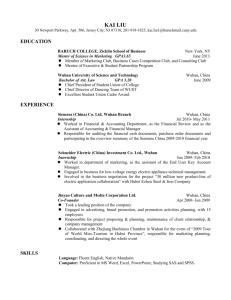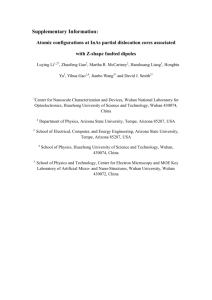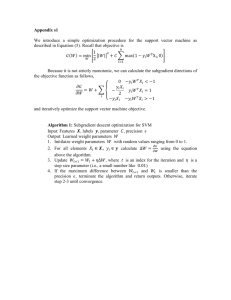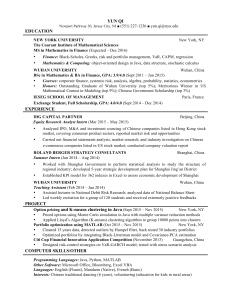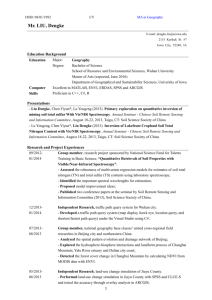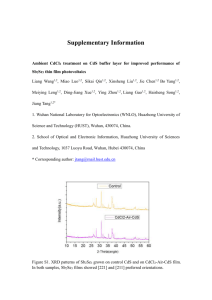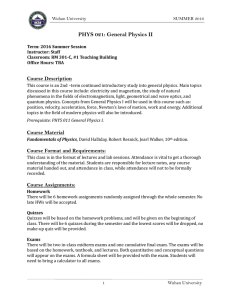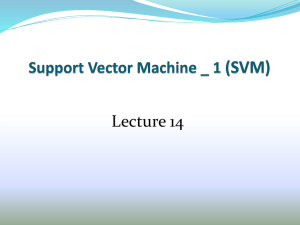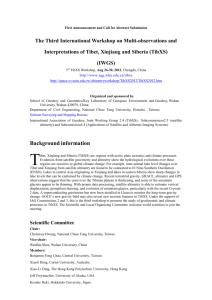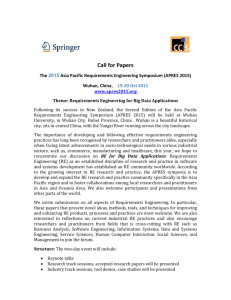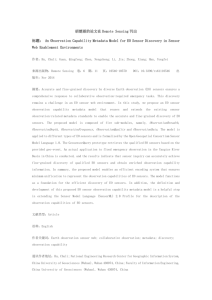the abstract template here
advertisement
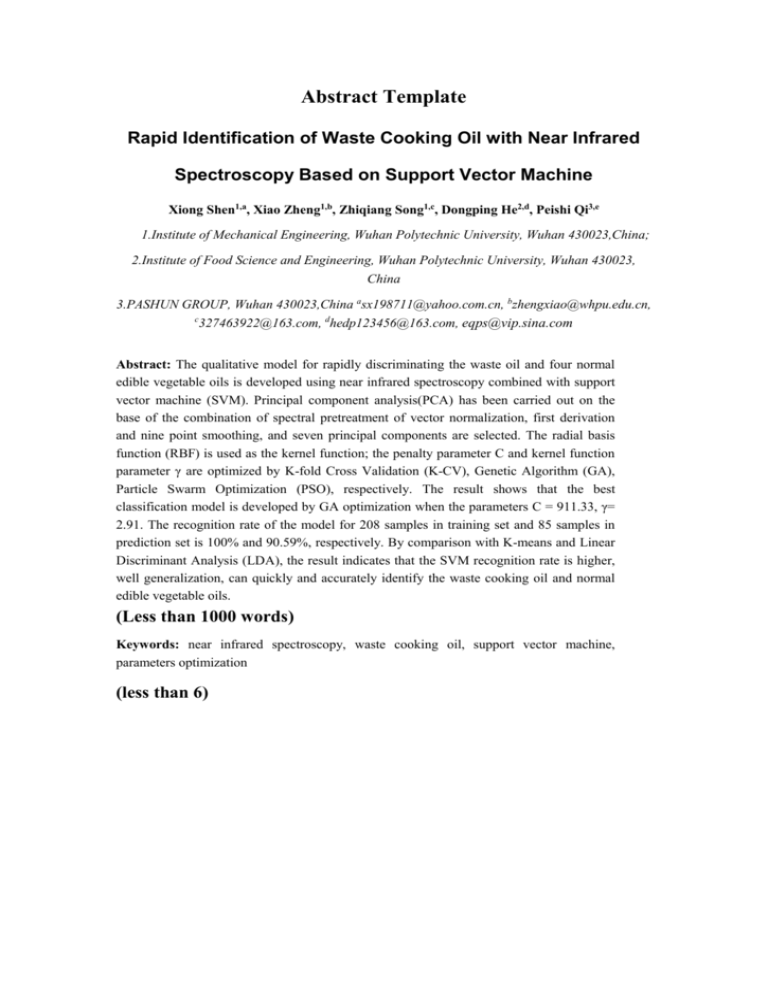
Abstract Template Rapid Identification of Waste Cooking Oil with Near Infrared Spectroscopy Based on Support Vector Machine Xiong Shen1,a, Xiao Zheng1,b, Zhiqiang Song1,c, Dongping He2,d, Peishi Qi3,e 1.Institute of Mechanical Engineering, Wuhan Polytechnic University, Wuhan 430023,China; 2.Institute of Food Science and Engineering, Wuhan Polytechnic University, Wuhan 430023, China 3.PASHUN GROUP, Wuhan 430023,China asx198711@yahoo.com.cn, bzhengxiao@whpu.edu.cn, c 327463922@163.com, dhedp123456@163.com, eqps@vip.sina.com Abstract: The qualitative model for rapidly discriminating the waste oil and four normal edible vegetable oils is developed using near infrared spectroscopy combined with support vector machine (SVM). Principal component analysis(PCA) has been carried out on the base of the combination of spectral pretreatment of vector normalization, first derivation and nine point smoothing, and seven principal components are selected. The radial basis function (RBF) is used as the kernel function; the penalty parameter C and kernel function parameter γ are optimized by K-fold Cross Validation (K-CV), Genetic Algorithm (GA), Particle Swarm Optimization (PSO), respectively. The result shows that the best classification model is developed by GA optimization when the parameters C = 911.33, γ= 2.91. The recognition rate of the model for 208 samples in training set and 85 samples in prediction set is 100% and 90.59%, respectively. By comparison with K-means and Linear Discriminant Analysis (LDA), the result indicates that the SVM recognition rate is higher, well generalization, can quickly and accurately identify the waste cooking oil and normal edible vegetable oils. (Less than 1000 words) Keywords: near infrared spectroscopy, waste cooking oil, support vector machine, parameters optimization (less than 6)

